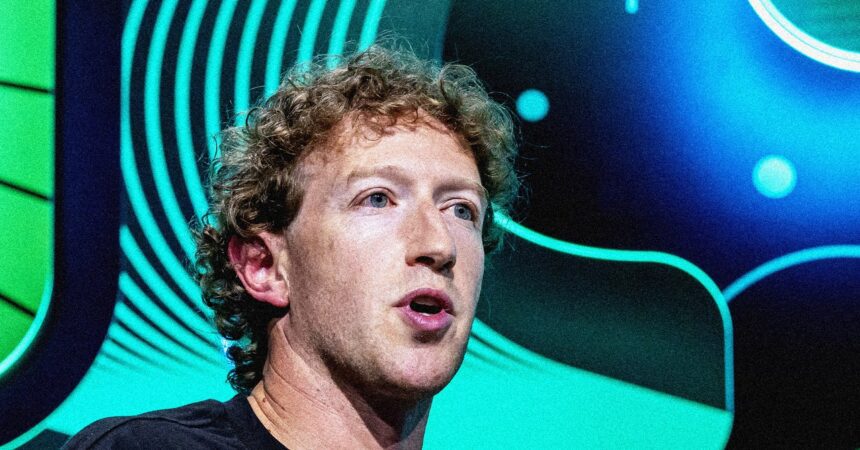The Evolution of Mark Zuckerberg’s Stance on Content Moderation: A Shift Towards "Free Expression"
In the digital age, the role of social media platforms in shaping public discourse has never been more critical. One of the most prominent figures in this landscape is Mark Zuckerberg, founder and CEO of Facebook (now Meta). Over the years, Zuckerberg’s approach to content moderation has undergone a transformative journey, reflecting broader societal debates about free speech, misinformation, and the responsibilities of tech companies.
The Initial Commitment to Moderation
Back in April 2018, during a conversation with a journalist, Zuckerberg articulated a vision for a more responsible Facebook. Responding to mounting criticism over the platform’s facilitation of hateful content and disinformation, he announced plans to enhance content moderation. His strategy involved hiring more human moderators and leveraging artificial intelligence to actively seek out and eliminate harmful content. He acknowledged that merely equipping users with tools to flag problematic posts was insufficient, asserting, “We need to get in there more and just take a more active role.”
This commitment was a direct response to the growing public outcry about the dangers posed by unregulated online discourse, particularly in the context of electoral integrity and public health during the COVID-19 pandemic.
A Shift in Philosophy: Embracing "Free Expression"
Fast forward to 2023, and Zuckerberg’s narrative has taken a dramatic turn. In a recent five-minute video, he expressed regret for the moderation approach he once championed, rebranding it as a capitulation to external pressures. He announced a significant policy shift that entails scaling back proactive content moderation efforts and ending the fact-checking program designed to combat misinformation. Instead, Meta would adopt a crowdsourced model known as “community notes,” where users could share their perspectives on the accuracy of posts.
Zuckerberg’s rationale appears rooted in a desire to foster a climate of free expression, even if it paradoxically opens the door to an increase in harmful content. He posits that allowing more unrestricted speech, including potentially dangerous misinformation, is a necessary trade-off for the sake of free discourse.
The Implications of the Policy Shift
This ideological turnaround raises critical questions about accountability and the very foundation of what constitutes informative and reliable content. The replacement of traditional fact-checkers with a community-based model poses a risk: it blurs the lines between expertise and opinion, potentially empowering misinformation rather than curbing it. The fact-checking process, despite its flaws, relied on established journalistic principles aimed at uncovering truth through evidence-based investigation.
In contrast, community notes shift the responsibility of vetting information onto users, many of whom may lack the necessary expertise to discern credible information from falsehoods. While this model promotes engagement and democratic participation, it can also lead to the proliferation of unverified claims, eroding trust in genuine journalism.
The Influence of Political Dynamics
Zuckerberg’s recent initiatives seem to reflect deeper political currents, particularly the changing landscape under the new Trump administration. This pivot includes not only changes in content moderation but also personnel reshuffles within Meta, alongside public appearances that align with conservative media outlets. The promotion of Joel Kaplan, a former GOP operative, to chief global affairs officer signals a strategic alignment with right-leaning narratives, which often frame mainstream media as antagonistic.
Additionally, the disbanding of diversity, equity, and inclusion (DEI) programs further spotlights Meta’s evolving corporate ethos, which some critics interpret as a retreat from previously embraced values of accountability and social responsibility.
The Dangers of Dismissing Journalistic Integrity
As Zuckerberg redefines his relationship with traditional media — labeling it as “legacy media” and ostensibly equating it with censorship — he risks undermining the credibility of rigorously fact-checked journalism. This dialectic mirrors broader societal narratives where established media institutions are dismissed, feeding into populist sentiment against perceived elitism.
The implications are profound: as companies like Meta redefine the frameworks for trust and truth, the erosion of established journalistic norms threatens to destabilize the public discourse. This could lead to an environment where misinformation proliferates unchecked, reinforcing divisions and heightening polarization among users.
Conclusion
Mark Zuckerberg’s evolving stance on content moderation reflects a profound shift in priorities — from a focus on accountability to a liberal embrace of unregulated speech. While the intention to promote "free expression" is laudable, the repercussions of diminishing content moderation could herald a more chaotic and less trustworthy digital landscape. The challenge of balancing free speech with the pursuit of truth demands thoughtful dialogue and careful scrutiny, both from tech executives and the public. As we navigate this complex terrain, the call for responsible stewardship of information remains urgent and necessary.










